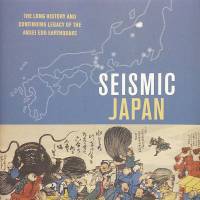"Seismic Japan: The Long History and Continuing Legacy of the Ansei Edo Earthquake" examines the historical significance and cultural influence of the earthquakes that rocked the country between 1596 and 1933.
Looking specifically at the Ansei Edo Earthquake of 1855, Gregory Smits bases much his discussion around the theory that the quake, which struck during a year of special religious significance, was not supposed to have happened. A significant number of Japanese viewed it as "a medicine to correct an imbalanced society."
As crazy as that may sound, then-Tokyo Gov. Shintaro Ishihara's comments after the 3/11 quake and tsunami suggest that some still think along such lines.



